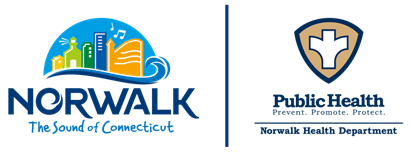
January is National Radon Action Month (NORWALK, Connecticut) – January is National Radon Action Month, and your state and local health departments urge you to learn more about radon—a leading cause of lung cancer—and test for radon in your home. Due to COVID-19, more people are finding themselves working from home and learning remotely. This is a great time to ensure that your home environment is safe for you and your family by checking radon levels. The Norwalk Health Department will mail free radon testing kits to interested residents, while supplies last.
The kits were provided as part of the Radon Partnership from the Connecticut Department of Public Health (CT DPH). To receive a free radon kit please complete this short survey https://www.surveymonkey.com/r/NHDRADON. Kits will be mailed out once a week to applicants. Radon is an invisible, odorless, tasteless radioactive gas released in soil, rock, and water from the breakdown of uranium. It can be drawn into homes and other buildings through cracks and other openings in the foundation.
Long-term exposure to high levels of radon gas indoors is the leading cause of lung cancer in nonsmokers, and smokers are at an even higher risk of lung cancer when exposed to radon. Radon levels vary throughout Connecticut. Levels of radon may vary in each home depending on the structure of the building; your home can have elevated levels of radon while your neighbor’s home does not. Because you cannot see, taste, or smell radon, the only way to tell if you have a radon problem in your home is to test for it.
CT DPH estimates that the average cost of this service ranges from $1,200 to $1,500. For more information and a list of radon professionals please visit the CT DPH website (http://www.ct.gov/dph/radon).
If you need assistance with filling out the radon survey or have any additional questions, please call (203) 854-7790.